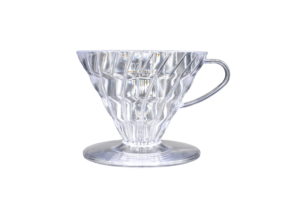Filter coffee is one of the most popular and versatile brewing methods. This technique allows the flavors and aromas of each bean to shine through , resulting in a unique experience with every cup. Unlike methods such as espresso, filter coffee allows for a slow extraction that highlights the subtle notes of the beans, ideal for those who want to savor the nuances and complexities of specialty coffee.
At Café Barsel, we promote this method of preparation because we believe it is a gateway to the world of flavors and coffee culture.
Differences between Filter Coffee and Other Brewing Methods
Filter coffee is often confused with Americano, but there are key differences. An Americano is made by adding water to espresso, diluting its flavor. Filter coffee, on the other hand, uses a method where water slowly passes through ground coffee in a filter, extracting aromas and flavors with greater subtlety. This slow brewing process highlights the characteristics of the bean and is ideal for medium and light roast coffees, making it the preferred choice for those seeking a more complex and refined experience.
Common Mistakes in Preparing Filter Coffee
These are some common mistakes I've observed as a Q-Grader at Café Barsel. Avoiding them will improve the quality of your filter coffee:
-
Incorrect Coffee-to-Water Ratio: The correct ratio determines the coffee's strength. Recommended ratios are between 1:16 and 1:17 (1 part coffee to 16 or 17 parts water). If you're using a low-quality grinder, opt for a lower ratio (1:16). With specialty coffee, try 1:17 or 1:18 to bring out its flavors.
-
Incorrect grind: The grind depends on the roast and the filter. A common mistake is replicating recipes without considering these variables. Medium roast coffees usually need a coarser grind, while light roasts require a finer grind. Adjusting the grind according to the type of filter and roast can transform your cup.
-
Water temperature: Using water at the wrong temperature negatively affects extraction. We suggest using water close to the boiling point (approximately 92-96°C) to maximize flavor without introducing bitterness.
-
Do not shake the coffee: The "bloom" stage is essential for good extraction. Evenly wetting all the coffee grounds ensures a consistent flavor. A simple technique is to rotate the portafilter to saturate the coffee without creating channels in the filter.
- Inaccurate water pouring: Pouring technique affects extraction. Pouring abruptly or from an incorrect height can cause an uneven flow, resulting in an unbalanced cup. Using kettles with a gooseneck spout makes for a controlled and even pour.
How to Choose the Perfect Coffee for Filter Brewing
Choosing the right coffee bean is crucial for good filter coffee. When selecting your coffee, keep the following in mind:
-
Origin and Flavor Profile: Single-origin coffees, such as those from Ethiopia or Kenya, often have fruity and floral notes that are well-developed when filtered. These single-origin coffees allow the filter method to highlight their subtle flavors and balanced acidity .
-
Light or Medium Roast: The roast directly affects the flavor of filtered coffee. Light and medium roasts are generally ideal, as they preserve the natural aromas and fruity notes of the bean. At Café Barsel, we recommend our medium roast coffees for a balanced and smooth flavor.
- Coffee Freshness: The coffee should be fresh, preferably freshly roasted and ground shortly before brewing. Freshness is essential to capturing the full complexity of flavors in the cup.
Recommended Brewing Methods for Filter Coffee
For filter coffee, there are several popular methods that offer unique results:
-
V60: Its conical filter allows for rapid extraction and highlights the fruity and floral notes of the coffee. Ideal for bright and complex profiles.
-
Chemex: With a thicker filter, it produces a clean, smooth-tasting coffee, highlighting delicate flavors and providing a sediment-free cup.
- AeroPress: This portable device allows for versatile extraction, offering a medium-bodied beverage with intense aromas.

Conclusion: Perfect Your Filter Coffee
As a Q-Grader at Café Barsel, I've had the opportunity to delve into every detail that makes a cup of filter coffee unique. For me, this preparation is more than just a method: it's an art that allows me to explore the world of coffee in all its breadth of flavors and aromas. From the coffee-to-water ratio to the precision of the pour, every step counts and can make a difference in the final experience.
I hope these tips inspire you to experiment and refine your technique, because filter coffee has the ability to reveal the most subtle and surprising characteristics of each bean. At Café Barsel, we are passionate about sharing this knowledge and accompanying all coffee lovers on their journey to the perfect cup. So go ahead and experiment, adjust every variable, and enjoy every sip! And if you have any questions or new ideas, don't hesitate to share them. Let's learn together how to take our coffee to the next level.






